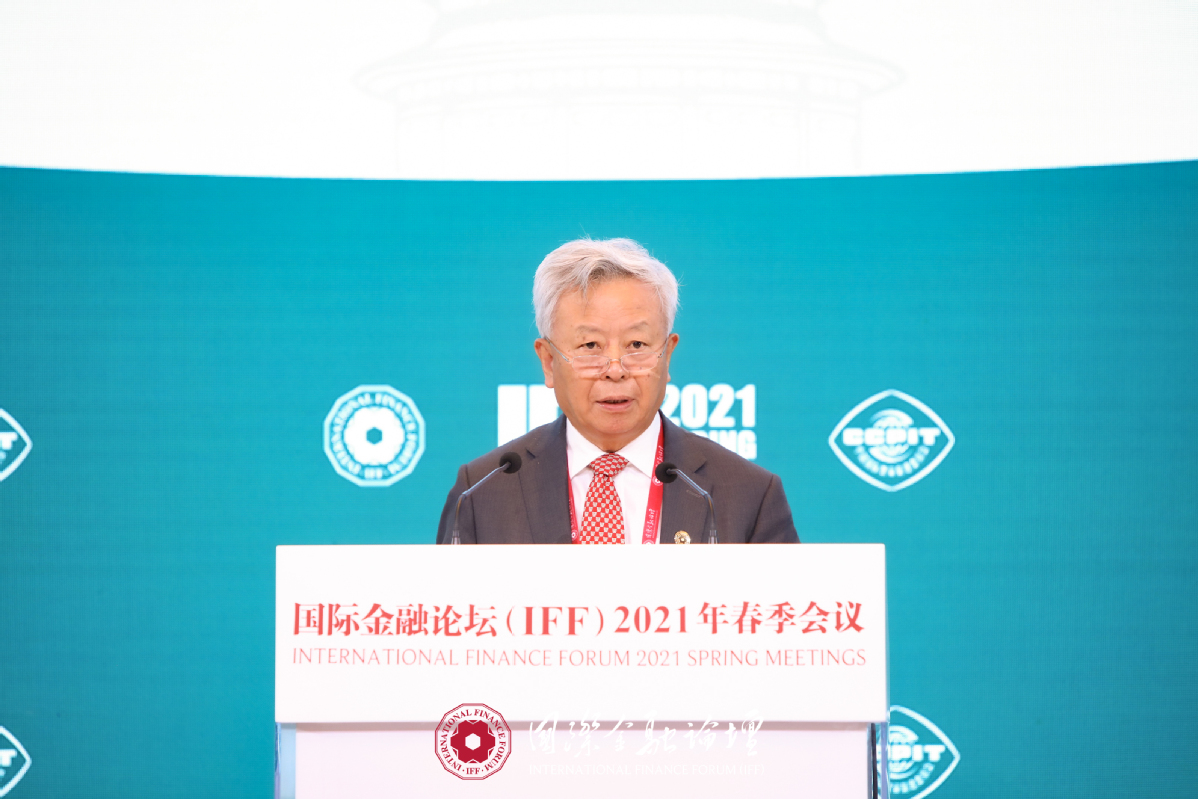Invest in sustainable infrastructure to reboot growth, says Jin Liqun


Investing in sustainable infrastructure in the post-pandemic economic recovery will be one of the most effective ways of revitalizing the economy from the crisis, said Jin Liqun, president of the Asian Infrastructure Investment Bank, on Saturday.
Jin made the remarks when addressing the International Finance Forum 2021 Spring Meetings on Saturday morning, when he called for stronger global cooperation amid COVID-19 impact. This year's meeting, themed on Global Governance and International Co-operation in the Post-pandemic era, is being held in Beijing from Saturday to Sunday through both online and offline format.
Noting the importance of current global challenges, Jin said the international community must come together once more to enhance the global governance system, which he describes as a system with "power, authority and teeth".
He said that major challenges the world faces today cannot be addressed without cooperation on a global scale, as these challenges "know no national boundaries, nor do they care socio-economic circumstances," adding that solutions to these challenges must be fair and equitable.
He urged as low-income, developing countries tend to be much more vulnerable in face of the pandemic shock, development banks and other development partners need to work faster to help governments of low income countries to build up strength in healthcare systems.
"We all know that nobody is safe until everybody is safe," he added.
He said that AIIB has quickly adapted its lending program since early 2020 to respond to the immediate needs of governments and private sector. To date, AIIB has lent over $7 billion to support health infrastructure, economic resilience, and liquidity constraints in developing countries in addition to the bank's normal lending infrastructure.
The bank's most recent lending step was a commitment of $50 million to the SUSI Asia Energy Transition Fund as an effort to mobilize private capital for the emerging market sustainable energy sector.
He said the bank believes the best way to tackle the pandemic impact is "to stimulate growth, to invest in human capital and infrastructure for tomorrow".
"Infrastructure for tomorrow means we finance the infrastructure, which is financially, socially and environmentally sustainable, and this is our bank's new mission," he said, "Through this mission, we are committed to working with our members and our partner organizations to achieve the green recovery from the pandemic and take meaningful action on climate change for the benefit of the world."
The weekend forum, focusing mainly on how global cooperation will better help cushion the COVID-19 impact across country borders, is being attended by more than 500 guests from home and abroad through online and offline format. Founded in Beijing in 2003, the forum was established by more than 20 key international organizations, including the UN, and a significant number of financial institutions and leaders.




































